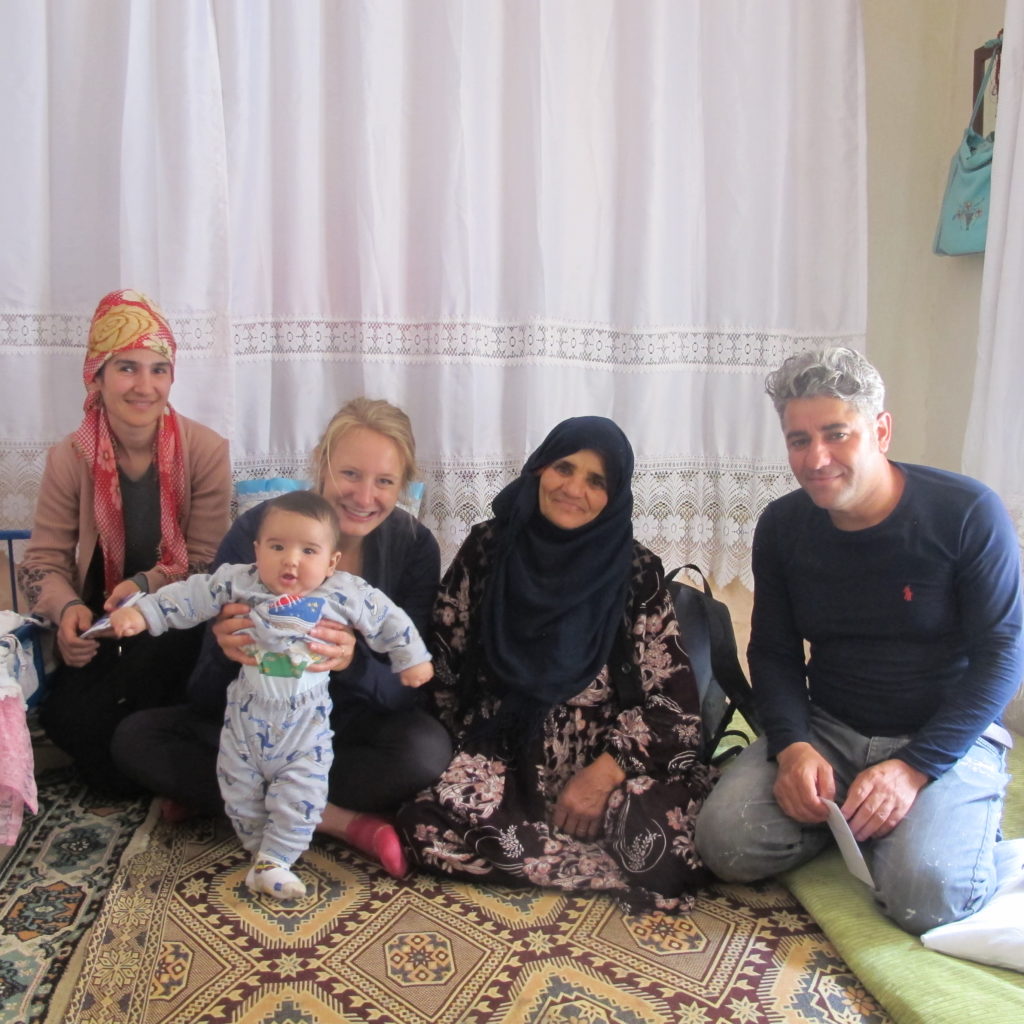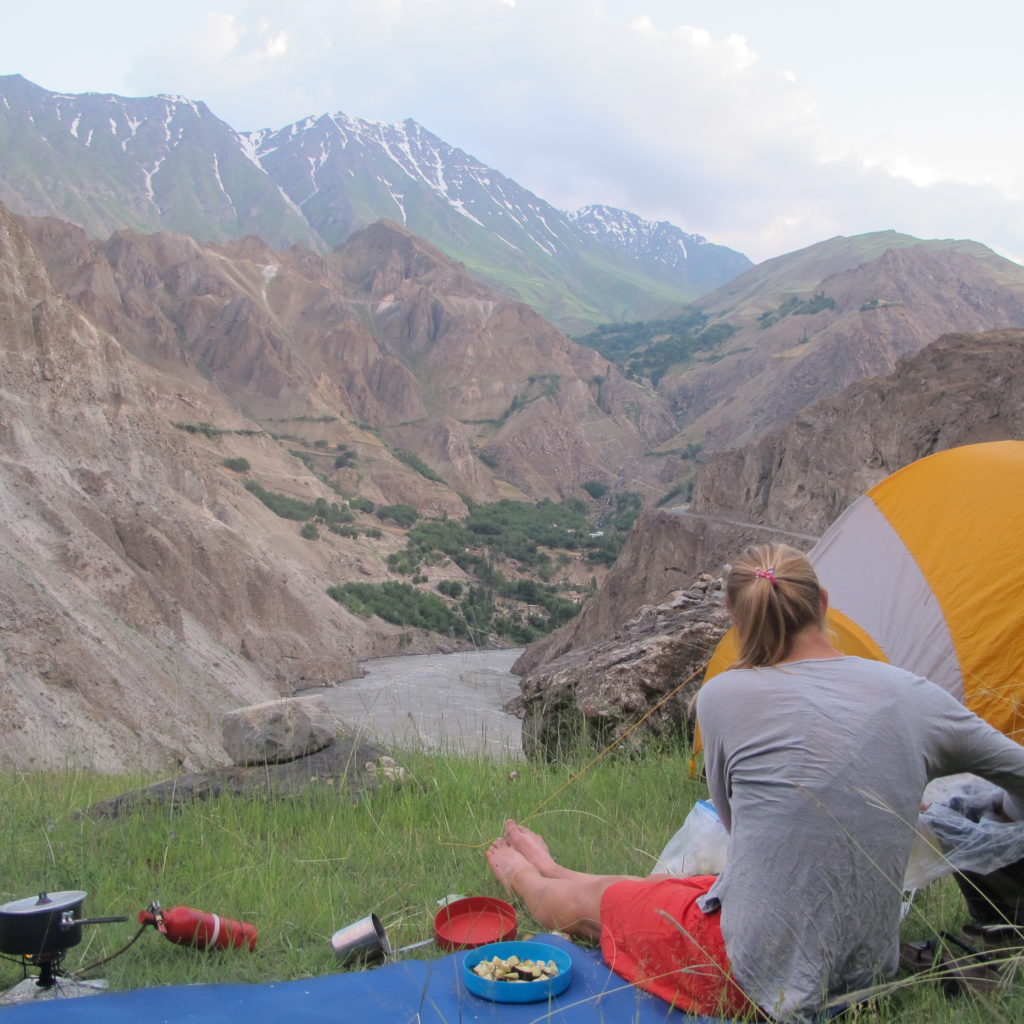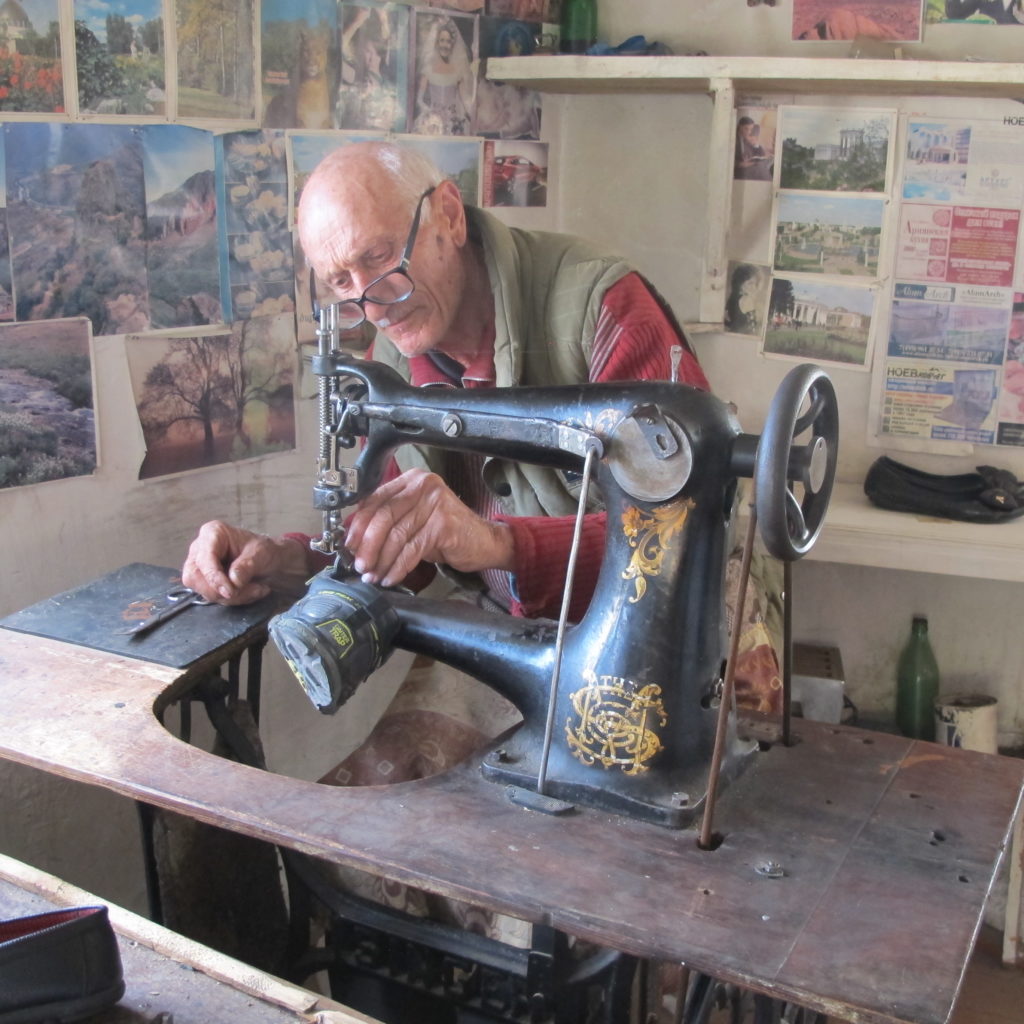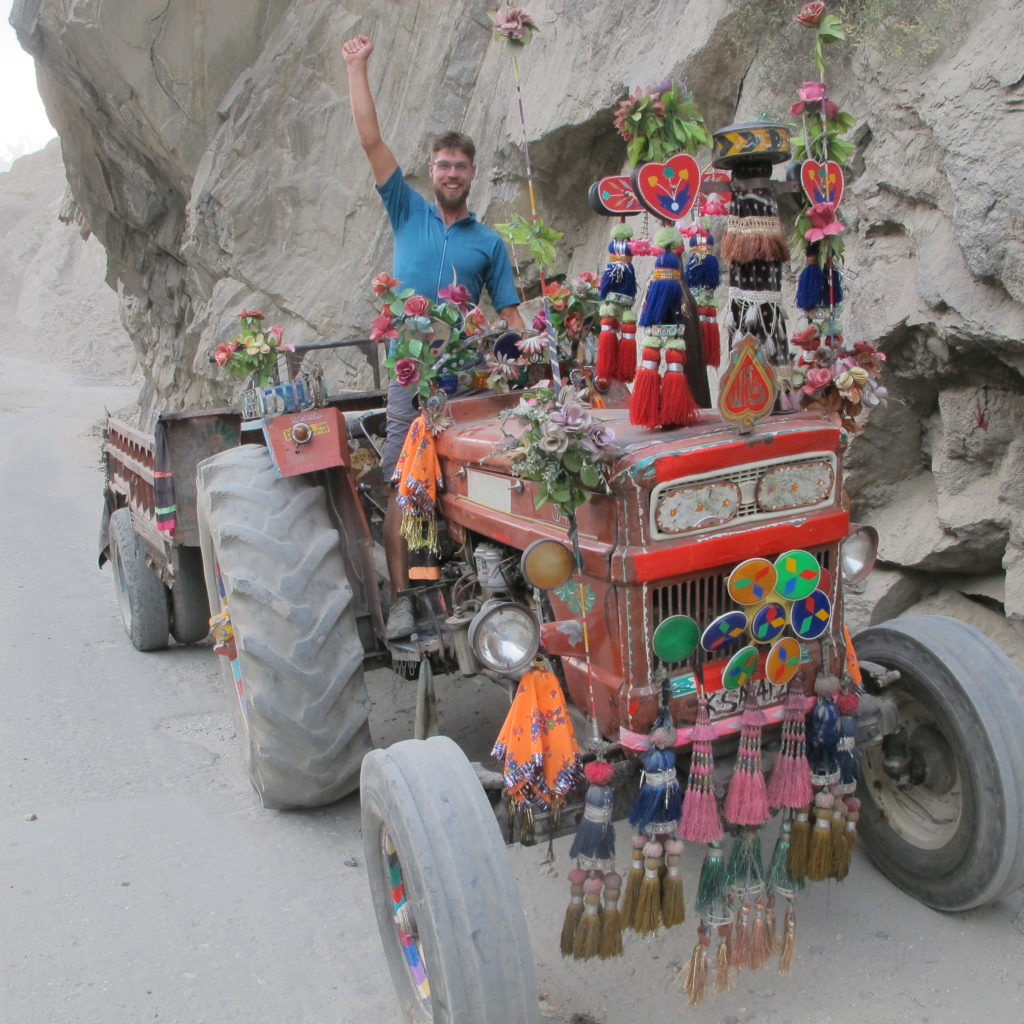Intro
My wife and I recently returned from an eleven-month trip that included backpacking in Africa and cycling across Central Asia. I’m not as quick as others to describe it as a ‘life-changing’ experience but, at the same time, won’t deny that exploring those parts of the globe in the way that we did shifted certain of my perspectives. I cannot pretend that I am the same person I was a year ago.
In many ways I am still trying to make sense of how we spent most of the past year. Why did we do it? What was it for? Writing this piece is probably part of that processing. For me, someone who was introduced to international backpacking at a young age, the value of travel feels inherent. However, I appreciate this belief doesn’t ring true for everyone. Life is short and so many enticing things compete for our time and energy. Extended travel is right to demand justification. Below is my best attempt at making the case for it.

Extended Travel?
First, some definitions and clarifications.
What do I mean by ‘extended travel’?
I am thinking trips that last longer than a month.
Does it have to be ‘extended’? Can’t I just go on vacation? You can, but don’t be fooled.
The length of time that you are away is, I think, among the most critical features of travel. Vacations are great and they serve their own purpose. Their downfall is that, thinking practically, most people use vacations to escape their day to day reality, to recharge, to take a break. Accordingly, the benefits that flow from a vacation are different from those that accrue through extended travel.
Does my trip have to be international? No and yes.
I believe it is easiest to derive value from travel if it happens beyond your home borders, but to suggest that extended travel must be international would ignore the diversity that exists within most countries – Canada included. Regarding destination, the key is that the locations you visit are (1) notably different from your day to day existence and (2) they provoke curiosity. No doubt, the weirder the better, but so long as you are challenged and interested then you are set to gain from your time away.
What’s in it for me?
So, what is the value of extended travel and what makes it a worthwhile investment?
Putting aside the fact that travel can be fun, I want to focus on the skills that you tend to hone when you are on the road for a while.
It turns out several of them are among those listed in this LinkedIn article – Skills Companies Need Most in 2020
- Creativity
Finding yourself in foreign places, among people you don’t know and with whom you may not share any language, is a recipe to exercise creativity. For example, what do you do if the day’s last bus just left the village you spent the day exploring and you were not on it? Some might see this as reason to panic or as failed planning. But, I would argue, it’s neither. Instead, it’s an opportunity to get creative. Are there other methods of transport out of the village? Where might you sleep in the village if the transport options turn out to be limited? There are many ways to approach this challenge. All of them require some creativity.

- Navigating Uncertainty
Many people tend to thrive in structure and shy away from ambiguity. This is natural. Uncertainty often invokes fear. But life, at times, is uncertain and so it is helpful to practice navigating self-induced uncertainty so you develop tools to manage similar challenges when circumstances beyond your control dictate them. Travel is a wonderful real-life simulator. While you are traveling, unless you have arranged your entire month away as a series of pre-booked tours, accommodations and restaurant reservations, you will be forced to think on the fly, to adapt to changing circumstances, to take decisions with unknown outcomes and to become comfortable with not knowing what will happen next. Further, like in uncertain times, you often have imperfect information. Due to the sheer number of decisions you are obliged to take in a given day (what to eat? where to sleep? what to visit? should I buy a map? should I shake this stranger’s hand?), you receive near constant feedback on your decision-making process. Accordingly, because you are experiencing less certain (and often less comfortable) scenarios for prolonged periods, you become more adept at existing in this uncertain state of being. It’s not quite Malcolm Gladwell’s concept of 10,000 hours, but it sorta is.
- Emotional Intelligence and Empathy
It sounds trite but most people lead a daily existence that I can’t begin to understand. Like you and me they eat, sleep, and, at different times, feel elation or anger; however, the specifics of their relationship with these activities or feelings is vastly different. This is true for people living in my same building in downtown Toronto. This difference is even more pronounced as compared to those people living in a very different circumstance on the opposite side of the globe (think: a goat herder in rural Tajikistan; or a shopkeeper in Adigrat, Ethiopia). But, it is often forgotten. Is that a problem? No, not necessarily. Each of us must go about our daily lives. We confront challenges, are exposed to sadness or triumph and, above all, must eat and sleep to get through a given day. How we approach these daily habits is informed by our prior experiences, current circumstances and future goals. It is what we know. For the most part, it is a method that works.
Nonetheless, making time to deliberately come into contact with people doing stuff differently benefits us. At worst, it serves as a good reminder that there are many ways to skin a cat. At best, it helps to cultivate empathy a habit that is valuable for several reasons. First, it deepens our human experience which means we may become more self-aware. Second, we feel more connected to other humans and more grateful for the fortune we have and hold. Generally, this means we are, all things equal, happier. Third, it is in-demand professionally. As more tasks become mechanised, fleeting are the days in which humans’ contributions to labour are derived from moving muscles and using our brains to calculate. Fortunately, robots, at least for now, are devoid of anything that approaches empathy.

Now what?
So, you’re thinking “I’m sold”. Extended travel sounds great and I want to make it happen in my life, but…
Yes, I know there are barriers to taking a month away. People have responsibilities, jobs, kids, etc. However, let’s take a minute to test some of the most cited limitations.
“My job won’t give me the time off” – Why do you think that? What steps have you taken to confirm that belief? It is increasingly common for employers to grant employees short term leaves. It may take time to get the ultimate thumbs up, but if you have a reasonable employer and are able to articulate how your time away will bring value to your organization going forward, it is at least worth opening a conversation about it. Heck, you could get a promotion upon your return. It happened to a friend of mine.
“I will fall behind my peers” – I get this. It is natural to measure our status and accomplishments against others. However, I believe this fear is unfounded. First, it’s a month. If you live to the age of 80, you will have lived 960 months. One or two months out of 960 is a drop in the life bucket. Next, while you take time to travel, your peers won’t be flexing their creative muscles, improving their comfort with uncertainty and developing their EQ like you will have. If anything, you’ll be further ahead. Play the long game.
“I can’t afford to” – At the risk of sounding both ignorant and arrogant with one word: priorities. Everyone must make prudent financial choices tailored to their situation, however saving for a trip, like anything else, is a commitment to your priorities. To get started you could halve how often you eat out, avoid buying any new clothes for a month or invite friends over to your flat for Friday drinks rather than meet at a bar. Additionally, foreign currency goes far in some places. Turkey is a great example. The destination you’re dreaming about should be somewhat informed by your financial circumstance.
“I have kids. I can’t” – Kids can travel. I was lucky to be one of those kids. Fair that your experience will be different traveling with kids than without, however kids are far more adaptive than adults. Expose them young and, while you’re at, it have fun! You’ll all be richer for it 😊
“My partner doesn’t want to go” – If you’re in a committed relationship, this can be a tough one. But, if you are motivated to travel, make it happen. Communicate openly with your partner. Understand their reasoning and motivations. Worst case, know that if you travel alone you will 10x your learnings. Trust me.
“I will miss stuff at home” – What? What are you going to miss? Your friends won’t forget you.
Get Out There
I’ll admit, my wife and I didn’t leave home thinking of our trip as investment in our future. We simply wanted to have an adventure.
That said, the experiences we enjoyed and endured last year I believe make us better people and more positively productive contributors to society.
Get out there!


